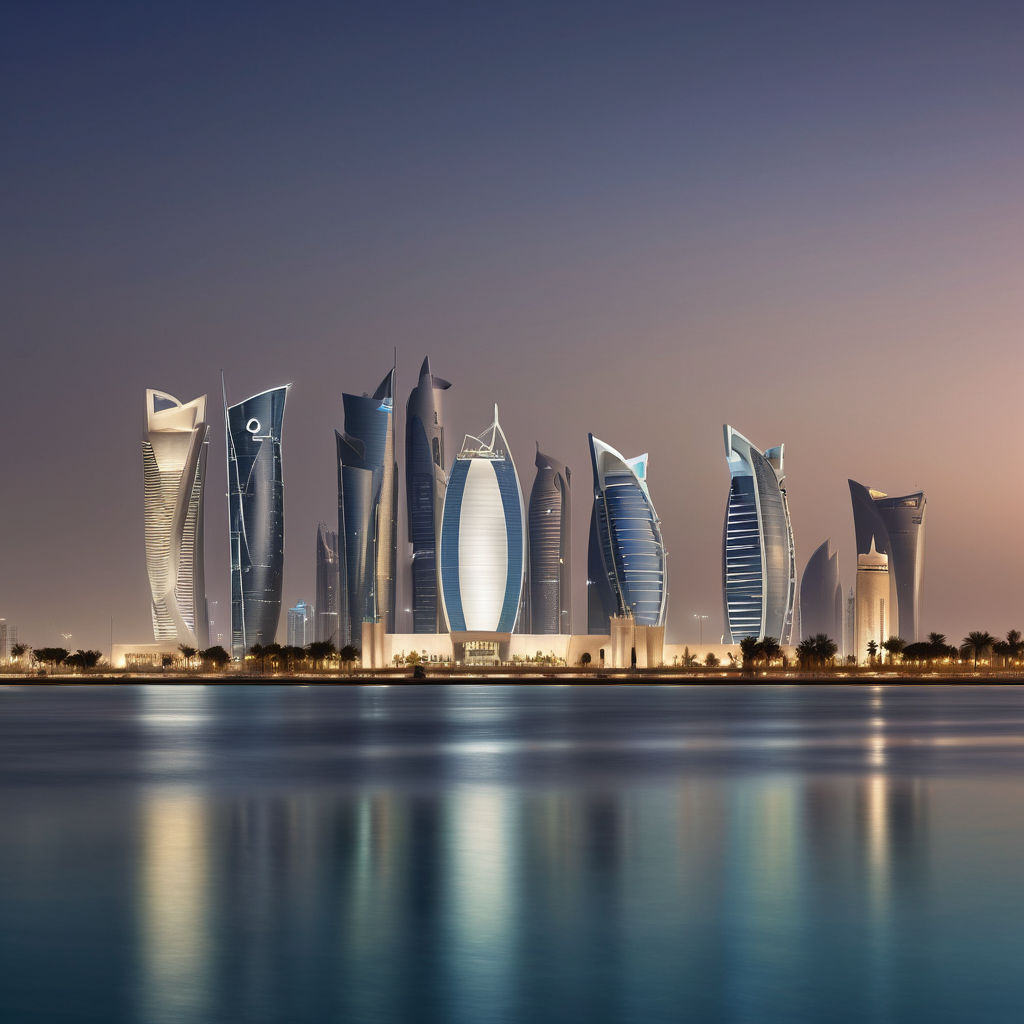Discover Qatar: A Blend of Tradition and Modernity
Exploring Qatar's Cultural Heritage and Modern Development

Introduction to Qatar
Qatar, a small yet prosperous country located on the northeastern coast of the Arabian Peninsula, is known for its vast oil and natural gas reserves. Bordered by Saudi Arabia to the south and the Persian Gulf to the north, east, and west, Qatar has a strategic geographical position in the Middle East. The capital city, Doha, is the country's political and economic hub, home to a skyline of modern skyscrapers and cultural landmarks like the Museum of Islamic Art and Souq Waqif. Other notable cities include Al Rayyan, known for its sports facilities and educational institutions, and Al Wakrah, a historical city with a rich maritime heritage.
Cross-national and Cross-cultural Understanding
Qatar's rapid modernization and economic development have fostered a multicultural environment where cross-national and cross-cultural understanding is highly valued. The Qatari government actively promotes cultural exchanges and international partnerships to enhance mutual understanding and global cooperation. One significant initiative is the Qatar National Vision 2030, which aims to transform Qatar into an advanced society capable of sustaining its development and providing a high standard of living for its people. This vision emphasizes the importance of cultural diversity and international collaboration. Educational programs play a crucial role in promoting cross-cultural understanding in Qatar. Institutions like Qatar Foundation and Qatar University offer various programs that attract students from around the world, fostering a multicultural academic environment. Additionally, Qatar hosts numerous international conferences and cultural festivals, such as the Doha International Book Fair and the Ajyal Film Festival, which provide platforms for cultural exchange and dialogue. Qatar's participation in international organizations, such as the United Nations and the Gulf Cooperation Council (GCC), further underscores its commitment to global engagement and cultural diplomacy. These partnerships enable Qatar to share its cultural heritage with the world while also learning from other cultures.
Interactions and Social Dynamics
Interactions between Qataris and foreigners are characterized by mutual respect and hospitality. Social behaviors in Qatar are deeply rooted in Islamic traditions, which emphasize generosity, politeness, and respect for others. Foreigners in Qatar often find the local population welcoming and eager to share their culture and traditions. Communication styles in Qatar can vary depending on the context. In professional settings, Qataris tend to adopt a formal and respectful tone, while in social interactions, they are warm and friendly. Personal space is respected, but physical gestures such as handshakes are common when greeting someone. It's important for foreigners to be aware of cultural norms, such as dressing modestly and showing respect for religious practices, to ensure positive interactions. Language plays a vital role in facilitating these interactions. While Arabic is the official language, English is widely spoken, especially in business and academic settings. The prevalence of English as a second language helps bridge communication gaps and promotes smoother interactions between Qataris and expatriates. Additionally, Qatar's diverse expatriate population includes speakers of various languages, further enriching the country's multicultural landscape.
Views on Dating and Relationships
Dating and relationships in Qatar are influenced by cultural and religious norms. Traditionally, relationships are approached with seriousness and intention, often leading to marriage. Public displays of affection are generally discouraged, and dating is typically conducted in private settings. However, Qatar's growing expatriate community and the influence of global cultures have led to more diverse attitudes towards dating and relationships. While traditional views still hold significant sway, younger generations are more open to modern dating practices and cross-cultural relationships. Online dating and social networking have also become popular among expatriates and younger Qataris, providing new avenues for meeting potential partners. Family approval is an important aspect of relationships in Qatar, and introducing a partner to one's family is a significant step. Cross-cultural relationships may require navigating different cultural expectations and gaining the acceptance of both families.
Marriage and Family
Marrying foreigners in Qatar is generally accepted, though it involves specific legal and social considerations. Legally, mixed marriages are recognized, but they require adherence to local regulations and obtaining the necessary documentation. The process may include converting to Islam if the foreign spouse is not already Muslim, as Islamic law governs marriage in Qatar. Socially, cross-cultural marriages can be both enriching and challenging. Acceptance of such marriages depends on the families involved and their openness to other cultures. Qatari weddings are grand events that blend traditional and modern elements, often involving elaborate ceremonies and celebrations. Family plays a central role in Qatari society, and the involvement of family members in marriage decisions is common. Families provide support and guidance, ensuring that the couple is well-prepared for married life. Cross-cultural marriages can bring together diverse traditions and practices, creating a unique and harmonious family environment.